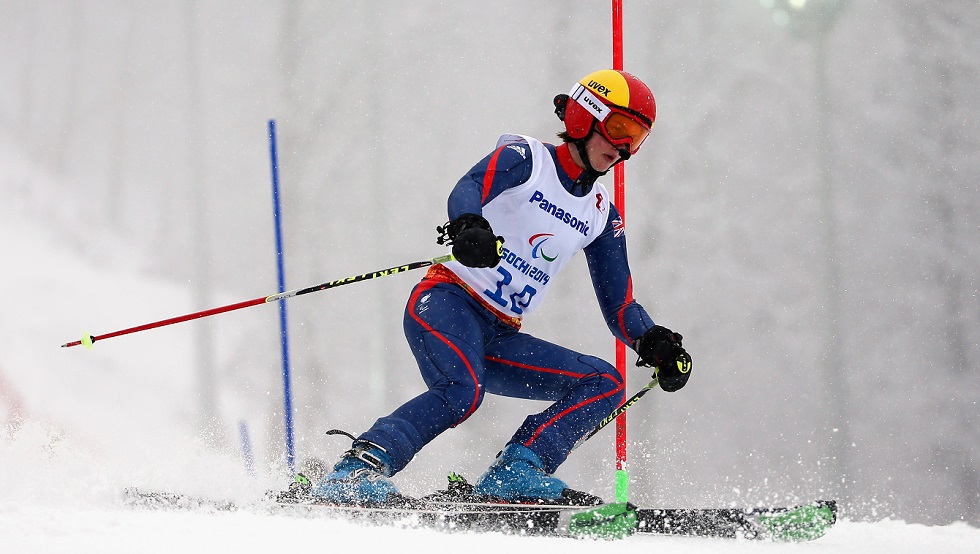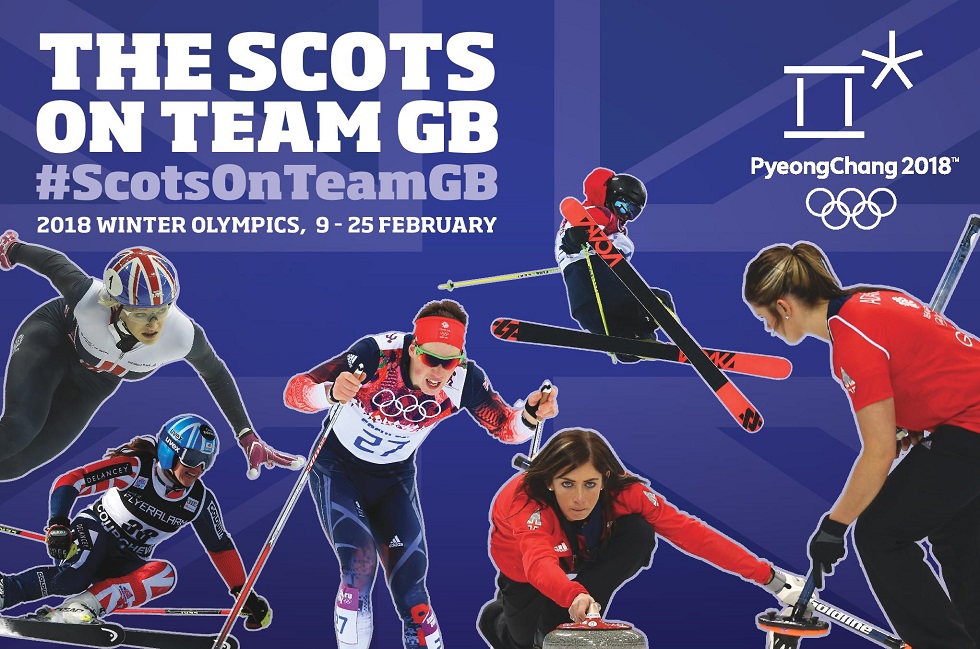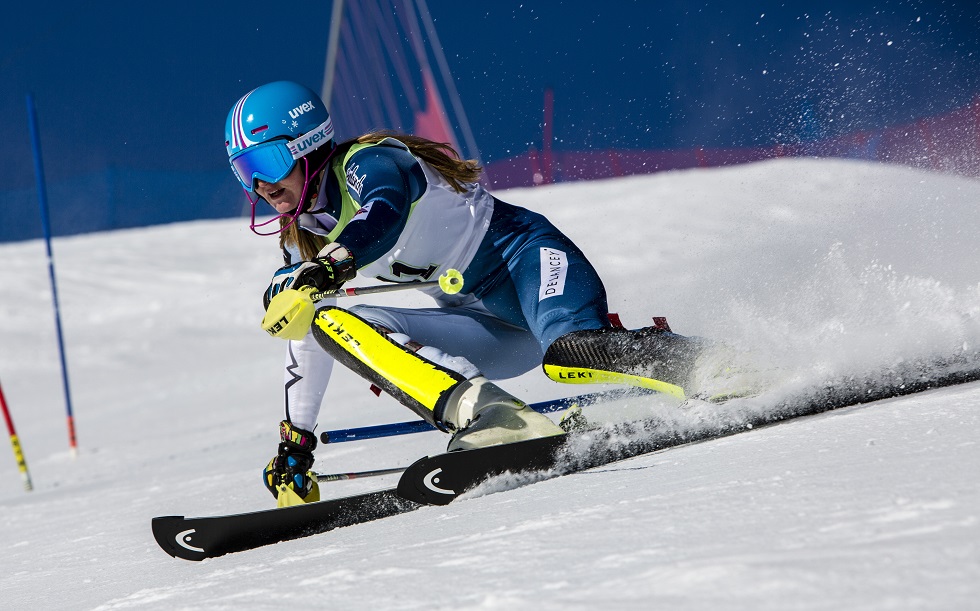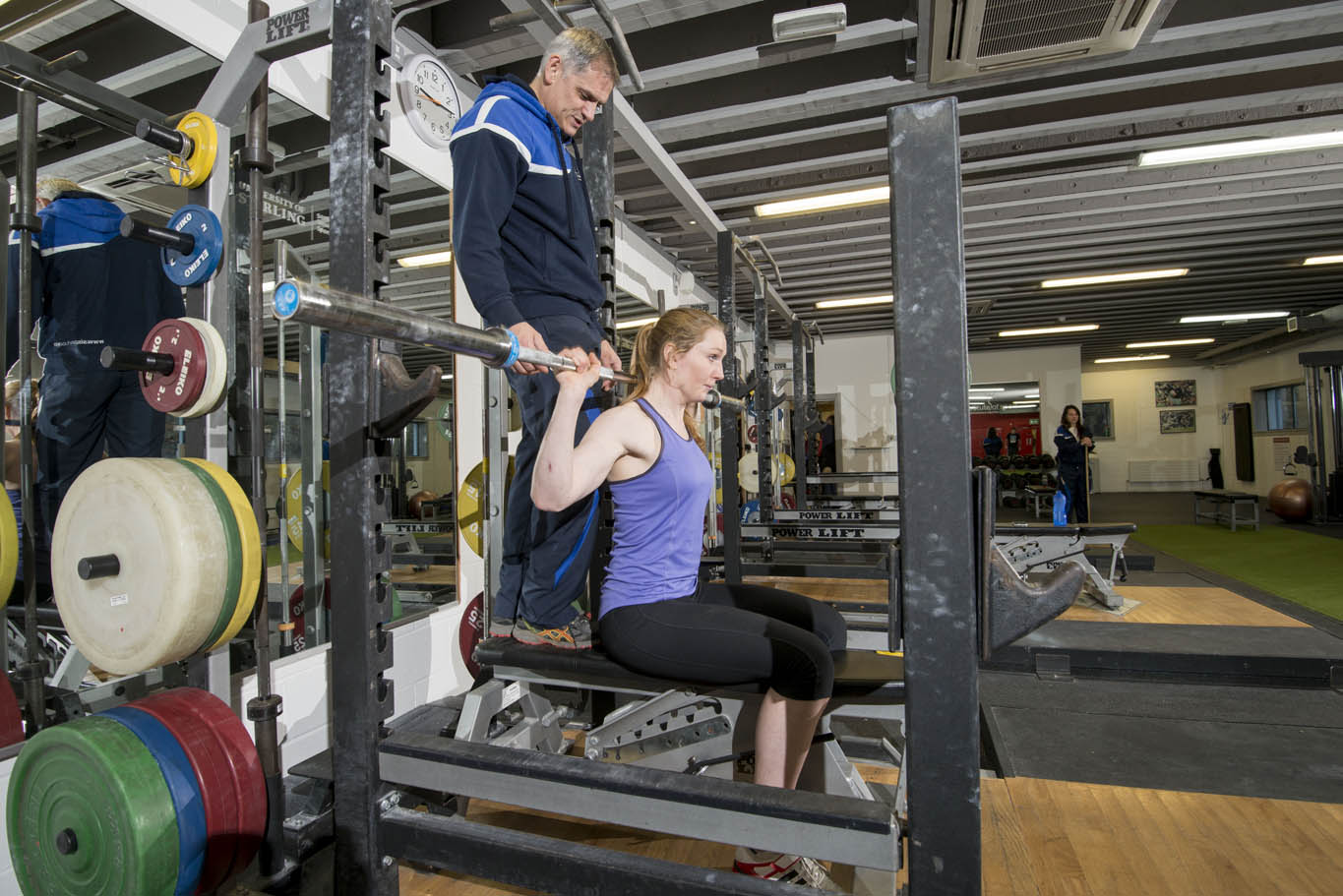If you thought Scotland's interest in the Winter Paralympics was confined to wheelchair curling, it might be time to think again.
Britain's parasnowsport movement is going from strength to strength and Scotland's contribution is becoming more and more significant in the process.
Only this week we have seen a Scottish skier, Brett Wild, guide the impressive Millie Knight to a gold medal at the World Para Alpine Skiing Championships in Tarvisio, Italy.
Brett, a British Navy submariner from Bearsden, East Dunbartonshire, linked up with Millie in April 2016 - six months after British Parasnowsport enlisted the expertise of the sportscotland institute of sport.
This collaboration is designed to help ParalympicsGB hit their medal targets for the 2018 Winter Paralympic Games in PyeongChang, Korea. Given the success of recent Olympic and Paralympic Games you might not be surprised to learn that those medal targets, set by UK Sport, are robust. But this young parasnowsport programme is a shining example of what can be achieved through targeted investment and shared purpose.
So who are the athletes?
All the members of the British parasnowport team have overcome profound barriers in their journey to becoming performance athletes.
The team currently ranges from visually impaired to standing or seated athletes who may be single or double amputees in their lower or upper limbs or have suffered spinal damage. Athletes who suffer from multiple sclerosis and cerebral palsy are also supported. Chris Lloyd from Wales has no feeling below his shoulders. Ben Moore competes with his left arm strapped across his chest. Two of the skiers are amputees as a result of bone cancer.
Several of these athletes have professions outside sport. James Barnes-Miller is a builder, Matt Short a lawyer, Jack Peters is an accountant. One thing they have in common is determination. Another is the ability to conquer fear as they hurtle down the slopes at great speeds.
A day after her gold medal success in Tarvisio, Millie Knight crashed while travelling at 105kmh.
Who makes up their support team?
In 2015 British Parasnowsport was created specifically to support the performance goals of skiers and snowboarders with a disability.
BPS is funded by UK Sport and The National Lottery and in October 2015 the organisation enlisted the expert help of the sportscotland institute of sport.
Within a few months, two members of the institute team – senior physical preparation coach Scott Crawford and lead physiotherapist Catherine Smaill – were actively involved with the athletes at training camps, working particularly on their health and wellbeing. They work 270 days a year on the programme, focusing mainly on the 10 skiers and snowboarders identified as podium athletes.
The institute also provides support in sports medicine, exercise physiology and performance nutrition, and all of the experts work with the BPS team which consists of a performance director, four coaches, an operations manager and an external sport psychologist whose work is fully integrated with that of the SIS group.
Beyond that, each of the athletes has his or her own personal support networks with whom Scott and Catherine liaise on a continual basis.
Physical preparation
Millie Knight is visually impaired and relies on her guide, Brett Wild, to guide her down the slopes. In terms of support there are challenges peculiar to this category of athlete but many of the principles are common among all disabled skiers and snowboarders.
“Just imagine the force these guys are having to withstand on snow. They have to be very technically efficient to deal with that amount of force going through their body," says Scott Crawford.
“As well as that, they have to be able to withstand high speed. In the case of a visually impaired skier, they are often moving at more than 80kmh with only two metres of visibility, sometimes less.
“They are working with a guide who communicates with them via Bluetooth headset and wears high-vis clothing, and they follow in their tracks. We train the guides, too – they are also athletes.
“The visually-impaired athletes can see some colour but very little detail. It’s like skiing flat out in a blizzard.”
Although the core principles of training are the same, there are unique areas of work with parasnowsport athletes that make it clear this is a more complex proposition for an expert than able-bodied athletes. Scott's body of work ranges from stump health to prosthetic fitting to hydration techniques designed for para-athletes who may not be able to visit the toilet as easily as their able-bodied counterparts.
“Prosthetic types are a real issue as they are not built to withstand the rigours of training and the demands of snowsports competition, which can result in poor fitting and discomfort for the athletes," Scott explains.
“Hydration is another big area. At 6000 feet above sea level, you exhale and perspire twice as much moisture as you do at sea level. Over the course of a day, that is a lot of water, and can make a difference of a quart (1.1365 litres) or more a day. At higher altitudes, it gets even more pronounced – these athletes are training at 3200m (nearly 10,500ft) and in summer it can be really warm.
“Working with Rachel Stentiford in the performance nutrition team, we look at optimal hydration and nutrition strategies, such as urine analysis in the morning to determine hydration levels. We look at sweat rates and calculate how much water they will need to replace that amount of liquid lost.
“The first time we tested the group on snow, about 80 per cent of the group were dehydrated.
"One of the problems we had to overcome was the perception that they will need to go to the toilet if they drink more. Going to the toilet isn’t always straightforward for a disabled skier.
“Alongside things like this we are encouraging them to think about general health and sleep. Some of them are very used to being provided with support, without having to be independent.”
Physiotherapy
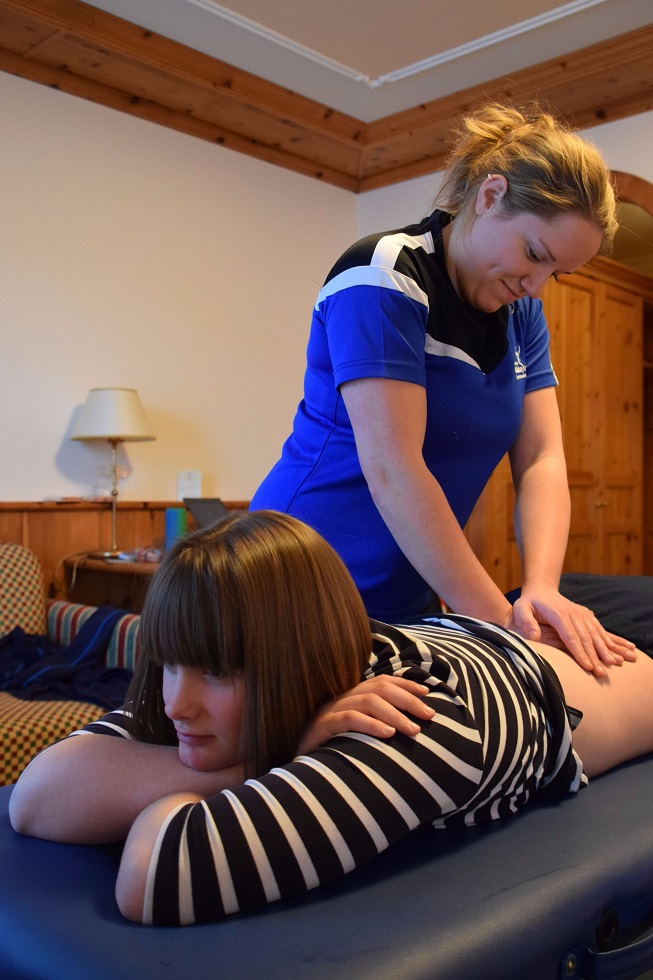 Catherine Smaill spends a lot of time with the athletes in preparatory camps (as pictured with Millie Knight). When at home in Scotland she receives daily data from the athletes via Visual Coaching Pro (VCP) which enables her to programme, plan and contribute to delivery when they are away, while monitoring their health and wellbeing.
Catherine Smaill spends a lot of time with the athletes in preparatory camps (as pictured with Millie Knight). When at home in Scotland she receives daily data from the athletes via Visual Coaching Pro (VCP) which enables her to programme, plan and contribute to delivery when they are away, while monitoring their health and wellbeing.
Like Scott, she finds that working with parasnowsports athletes throws up an extraordinary range of challenges.
“It’s important for the athletes to create good relationships with their prosthestist (the person who makes and repairs their prosthetic limb]. We’ve had some useful conversations with other practitioners within summer para-sports around this and are looking into developing strategies to improve athletes’ stump health," she explains.
“One of our snowboarders has had great care from her NHS clinic, who have designed a new leg for her that suits her. But all of the athletes have different experiences.
“The athletes within British Parasnowsport are inspirational but have been through a lot as a result of their impairment. Therefore, it has been key for us to get to know them as people to be able to get the most out of them.
“Also, when we joined the programme we discovered that 40 per cent of the athletes had injuries which required long-term rehab.
“One of our athletes had fairly extensive surgery on his ankle. Through the institute support we were able to bring him up to Stirling for five days’ accelerated rehab which provided him with a clear plan moving forward to get him back to snow.
“Through clear communication with his local physio we able to continue his progress locally and got him back in a better place than what he was before his injury. Beforehand, the programme only had physio input at competitions or on snow camps so it was very reactive and lacked expertise in optimising rehab.”
Strength in depth
Brett Wild did not hesitate to heap praise on the input of Scott and Catherine, and their fellow practitioners, when contacted by Sport First.
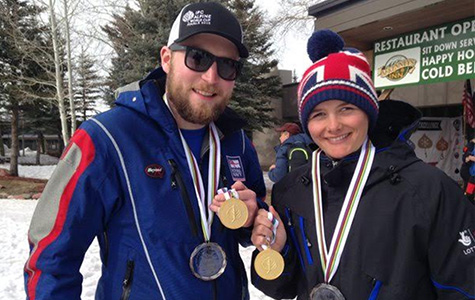 "The sportscotland institute of sport has been fantastic from the first moment I was introduced to the programme last April," said Brett, who has access to strength & conditioning, physio and soft tissue massage locally through the West institute network.
"The sportscotland institute of sport has been fantastic from the first moment I was introduced to the programme last April," said Brett, who has access to strength & conditioning, physio and soft tissue massage locally through the West institute network.
"From Scott's programmes alone I have increased my strength by over 60 per cent.
"Scott and Catherine in particular are always only a phone call away and couldn't be any more supportive."
Through speaking to Scott and Catherine it becomes clear that this programme is very much a work in progress. A fascinating evolution is taking place and they have been at the heart of it. When you consider that ParalympicsGB won five Alpine skiing medals including one gold at Sochi 2014 - where Millie Knight made her debut aged 15 and carried the flag at the opening ceremony - you realise the potential of the programme.
“The whole culture and environment was very much snow-based. Some of the athletes weren’t living like athletes," Scott recalls of the status quo prior to 2016. “One of the athletes went from losing his leg to being a world class athlete in four years. But only recently has he started to manage his workload.
“It’s about getting them to buy in to Visual Coaching Pro and other things that help us manage that workload for them. Athletes and coaches have to buy in to it.”
Catherine adds: "Only a few countries have started to tap into regular off-season training, so it’s an area that we can really excel in to improve performances. Our athletes compete pretty much full-on from August to March but now they train more effectively through the summer too.
“With having a young squad we need to keep one eye on the 2018 Games and the other eye on the future, and think about the longevity of our athletes and their ability to compete in multiple Games.”
Action replay
Watch Millie and Brett in downhill action in Tarvisio and reflecting on their gold medal courtesy of the BBC.
Find out more
Follow British Parasnowsport on Facebook and Twitter.
If you're interested in getting involved, check out the Disability Snowsport UK website.

